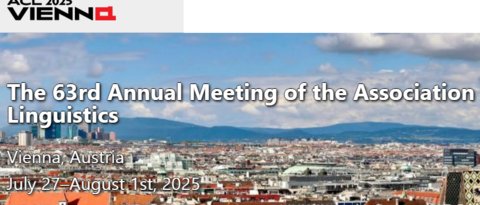We at the Chair for Natural Language Processing (Computer Science XII) study machines that can understand human language -- in fact, we try to make them understand very many different human languages. We primarily focus on written text but also work with speech as well as as vision-language models. Methodologically, the work of the group focuses on deep learning and representation learning methods for semantic modeling of natural language, with the special focus on multilingual representation learning and cross-language transfer of models for concrete NLP tasks.
Driven by LLMs, NLP has seen dramatic progress, primarily due to the technical ability to (pre)train ever larger neural language models on ever more text. Such progress can be exclusive as its benefits are beyond reach for most of the world’s population (e.g., speakers of low-resource languages, anyone who lacks computational resources needed to train or use these models). Moreover, training ever larger language models has a large carbon footprint and such models tend to encode a wide range of negative societal stereotypes and biases (e.g., sexism, racism). At WüNLP we specifically address these challenges and aim to democratize state-of-the-art language technology. To this end, we pursue three research threads that we hope will lead to equitable, societally fair, and sustainable language technology:
- Sustainable, modular, and sample-efficient NLP models,
- Fair and trustworthy NLP
- Truly multilingual NLP, with special focus on low-resource languages.
Text data is all around and besides the core methodological NLP work, we also work on interdisciplinary projects where we apply cutting-edge NLP methods to interesting problems from other disciplines, most prominently in the area of Computational Social Science (and so far most often in collaboration with political scientists).
Being amont the leading NLP groups in Germany with international prominence and visibility, our Chair substantially contributes to the high ranking of Uni Würzburg and CAIDAS in the area of AI. We regularly publish our research results at the top-tier NLP conferences (ACL, EMNLP, NAACL, EACL) and have established collaborations with leading European NLP groups (e.g., at University of Cambridge. LMU München, and TU Darmstadt).




